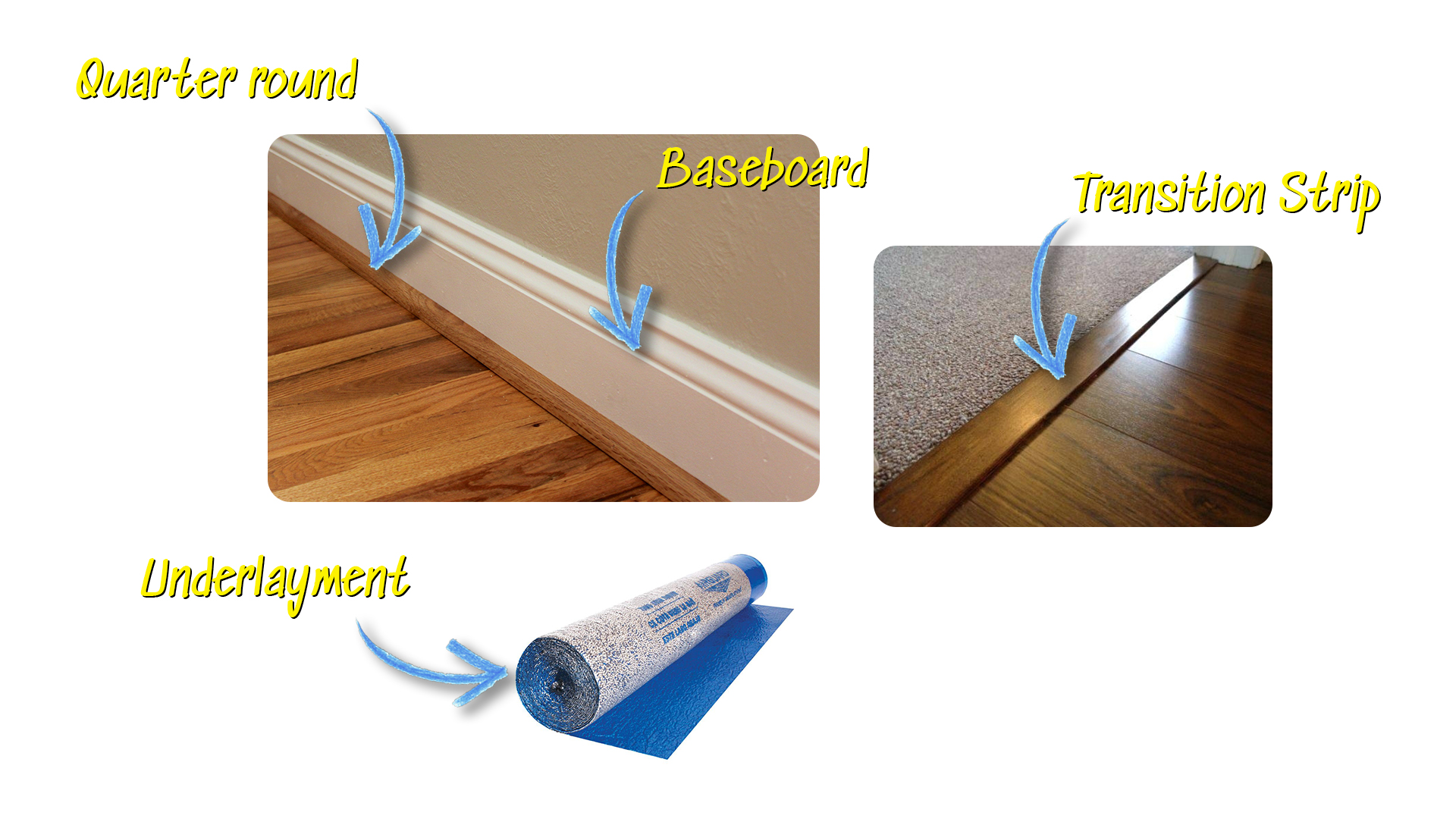Remember that time when you were determined to finally get the kitchen remodel you’ve been dreaming of for years? You envision a warm, inviting space where you’ll spend hours prepping meals and laughing with loved ones. Then comes the flooring dilemma. LVP, with its durable and beautiful qualities, quickly becomes a favorite. But one lingering question remains – do you install baseboards first or let the flooring go down first?

Image: www.pinterest.com
This is a common question that trips up many DIY enthusiasts. The answer, however, is not as simple as a “yes” or “no.” Like a good recipe, the right order depends on several factors. This guide will explore this crucial step, explaining the pros and cons of each approach, providing expert insights, and empowering you to make an informed decision for your own home.
Why the Order of Installation Matters
You might think, “Hey, it’s just baseboards, who cares?!” But the order in which you install baseboards and LVP flooring can drastically impact the final look and function of your room.
- For the sake of appearance: Installing baseboards before LVP can lead to uneven flooring edges, making your work look messy and unprofessional. Imagine a picture frame with a crooked and wobbly border – that’s what happens when a baseboard is installed before the floor.
- For the sake of functionality: Installing baseboards after LVP allows for a smooth, seamless transition between your flooring and the walls, ensuring a clean and functional space.
The Case for Baseboards Before LVP
While less common, there are reasons why some installers might opt for this approach, especially in certain circumstances.
- Existing baseboards: Sometimes, you might be working with pre-existing baseboards that you don’t want to remove or alter. In this case, laying LVP around the existing baseboards could be the better option. However, you need to be extra careful about precise cuts and measurements to ensure a clean and even finish.
- Unique design elements: If your baseboards have a unique design or intricate moldings, installing them before LVP allows for seamless integration into the overall design scheme.
The Case for LVP Before Baseboards:
For most homeowners, this is the recommended order for LVP and baseboards. Here’s why:
- Easier Installation: When you install the LVP first, you can easily transition the flooring to the walls without any obstructions. This makes the entire process more manageable and precise, resulting in a cleaner and neater final product.
- Seamless Integration: Installing the LVP first allows for a smooth, continuous flow of the flooring. This is especially beneficial if you’re working with LVP planks that have a specific design or pattern.
- Clean and Professional Appearance: A streamlined look with a smooth transition between flooring and the walls will elevate the overall aesthetic of the room. It provides a cohesive and polished look that’s visually pleasing and professional.

Image: viewfloor.co
The Golden Rule: Accuracy is Key
Regardless of the order you choose, the most critical factor is accuracy. Here’s what experts recommend for a successful installation:
- Precise Measurement: Take accurate measurements of your floors and walls to ensure that your LVP planks and baseboards fit perfectly.
- Proper Cutting: Invest in a quality saw (like a miter saw) to ensure clean and precise cuts for your LVP and baseboards.
- Careful Transitions: When installing baseboards, ensure they’re flush with the wall and the flooring. You might need to trim the baseboard slightly to create a smooth fitting.
- Expansion Gap: Don’t forget to leave an expansion gap between the walls and the LVP. This allows for the flooring to expand and contract with changes in temperature or humidity.
A Step-by-Step Guide to Baseboard Installation After LVP
Here’s a breakdown of the process:
- Prepare the Walls: Clean the walls thoroughly, filling in any cracks or holes with spackle. Sand the areas smooth and prime the walls to provide a smooth surface for the baseboards.
- Install the LVP Floor: Follow the manufacturer’s instructions for installation. Ensure the flooring is level and snug against the walls.
- Cut and Install Baseboards: Measure and cut the baseboard pieces for each wall section, making sure they perfectly fit between the floor and the wall. Use a miter saw for clean angles. Secure the baseboard with nails or screws, ensuring they are countersunk and filled with wood putty.
- Caulk and Paint: Apply silicone caulk between the baseboard and the floor, ensuring a smooth transition. Let the caulk dry completely before painting the baseboard to match your walls.
Expert Tips for Success
Experienced flooring installers share these tips for a flawless and seamless LVP and baseboard installation.
- Professional Consultation: If you’re unsure, don’t hesitate to consult a professional flooring installer for advice. They can offer expert guidance tailored to your specific project.
- Quality Tools: Investing in quality tools like a miter saw and a baseboard miter saw makes a huge difference in cutting precision.
- Patience and Attention to Detail: Take your time and pay attention to detail. Be patient with the process to ensure a beautiful and long-lasting result.
Do You Install Baseboards Before Or After Lvp Flooring
https://youtube.com/watch?v=JDTm2OpbjZA
Wrap-Up
The decision of whether to install baseboards before or after LVP ultimately comes down to your personal preferences and the unique characteristics of your project. Understanding the pros and cons of each approach, along with expert tips and practical steps, empowers you to make an informed decision. With proper preparation and attention to detail, you can achieve a beautiful and functional flooring installation that will stand the test of time.
Ready to tackle your own LVP and baseboard installation? Share your experiences and ask any burning questions in the comments below! Feel free to explore our helpful resources for even more tips and tutorials. Happy decorating!





